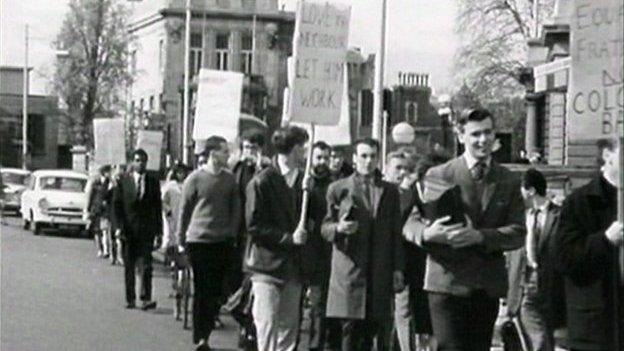Bus stop design competition honours Bristol bus boycott
- Published
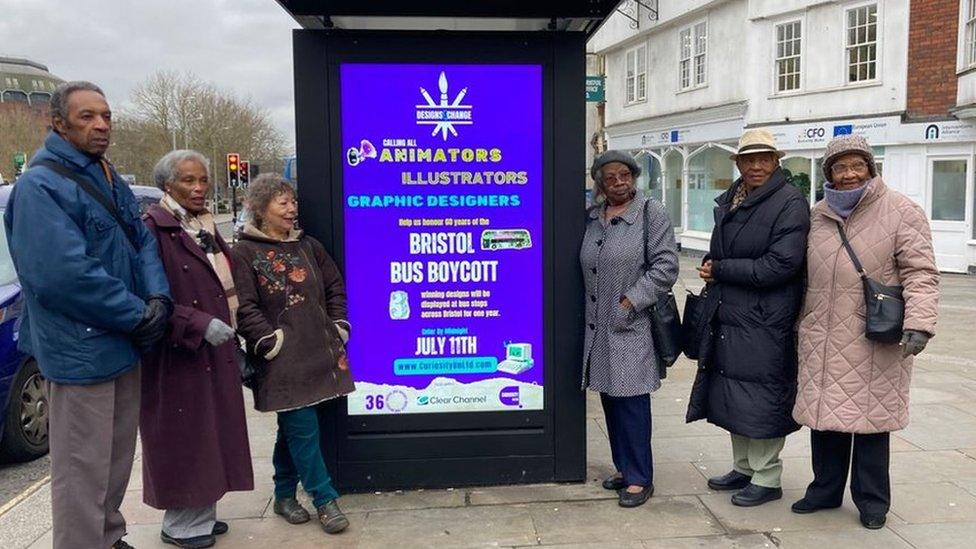
The winning designs must follow the theme of the Bristol bus boycott
A design competition has been launched to mark the Bristol bus boycott.
The 1963 protest was sparked after bus operators introduced a new rule banning black and Asian people from driving.
To commemorate the pivotal event more than 60 years on, think tank Curiosity UnLtd has teamed up with Clear Channel UK to launch the 'Designs4Change' competition.
For one year, the three winning designs will will be displayed on 45 of Clear Channel's bus stops across the city.
To pay tribute to the pioneers who paved the way for racial equality, the Designs4Change competition is looking for unique artworks which illustrate Bristol's history of protest.
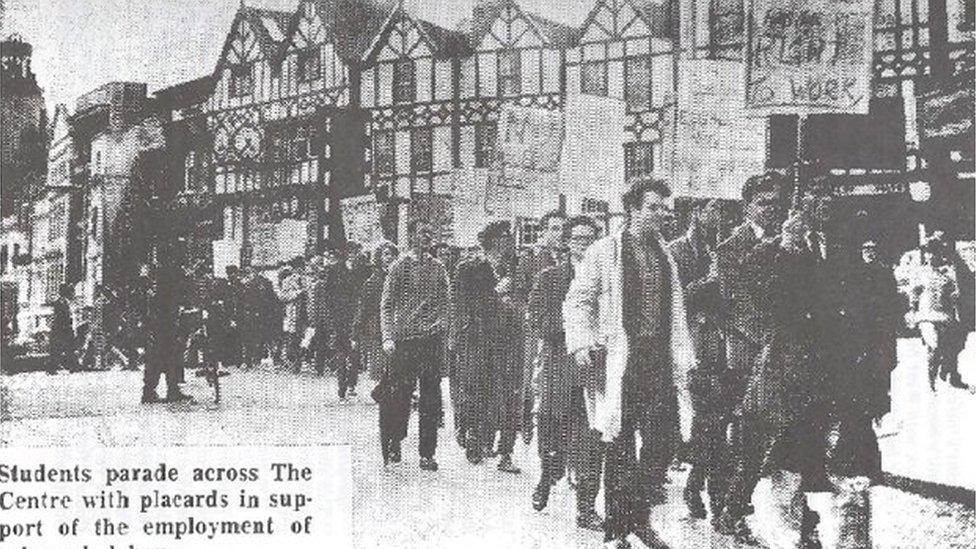
A newspaper cutting shows students marching in Bristol in protest against a "colour bar" on the buses
The Bristol bus boycott began in August 1963, when the then Bristol Omnibus Company refused to hire black drivers, after Guy Bailey was barred from a job interview because of the colour of his skin.
At the time, this racist policy was openly practiced across housing, employment, health and education sectors.
It launched a four month, city-wide protest and ultimately sparked a series of equalities acts in the 1960s and 70s which outlawed racial discrimination.
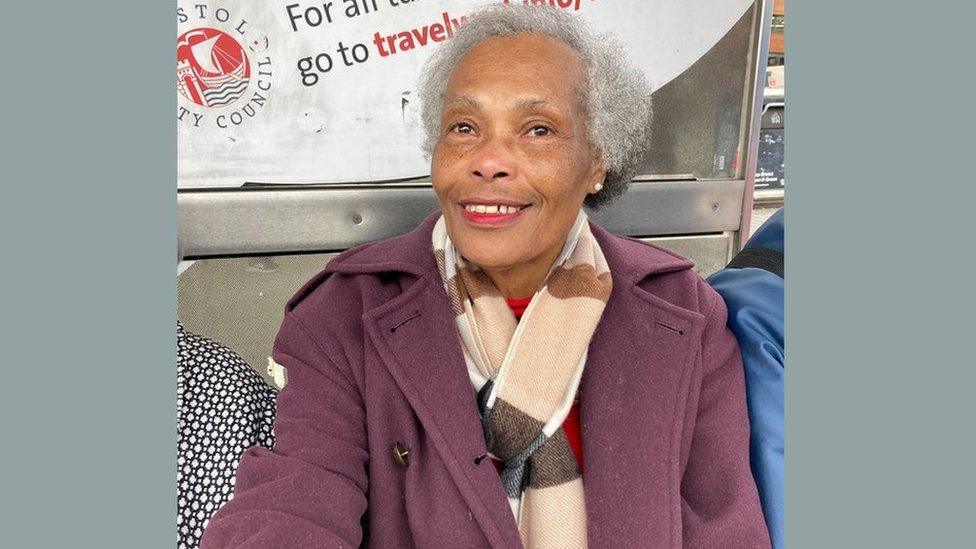
Ms Morris-Wisdom says she took the day off school to attend the protest in 1963
Joyce Morris-Wisdom was one of the protestors on the front line in 1963, aged just 14.
She said: "Even though being young and things sometimes go over our head, I was mature enough to take on the challenge to help change the course of history.
"Because we don't like the way things are sometimes, we decided that we can have an impact.
"I felt like I did something really well, not just for our community, but we broke down barriers for other people," Ms Morris-Wisdom continued.
"The impossible became the possible. We changed it, we've done it."
Fellow protestor, Tina Johnson-Martin, said the boycott "paved the way for a lot of black people".
"As a youngster, wherever there was a march, we were there," she said.
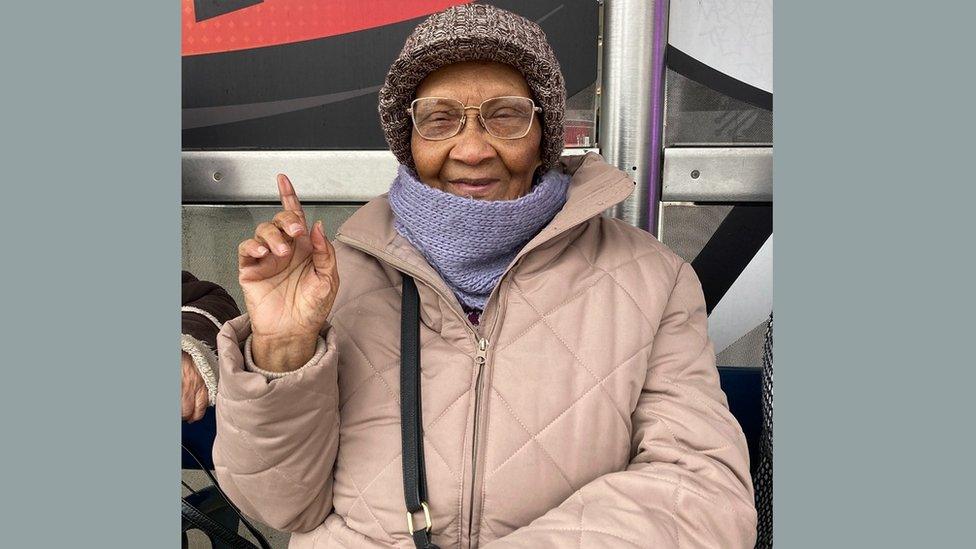
Guy Bailey, one of the key people in the boycott, was a friend of Ms Johnson-Martin's husband
She continued: "Before the boycott, there was so much prejudice about that we black people couldn't get a proper job.
"I'm looking at a better Bristol today, because lot of black people have got different jobs and they are accepted in these roles.
"The boycott is one of the things that brought us into the limelight," Ms Johnson-Martin added.
The deadline for the bus stop design entries is 11 July, with the winners set to be announced on 28 August. The competition is open to anyone.

Follow BBC West on Facebook, external, X, external and Instagram, external. Send your story ideas to: bristol@bbc.co.uk, external
Related topics
- Published24 October 2023
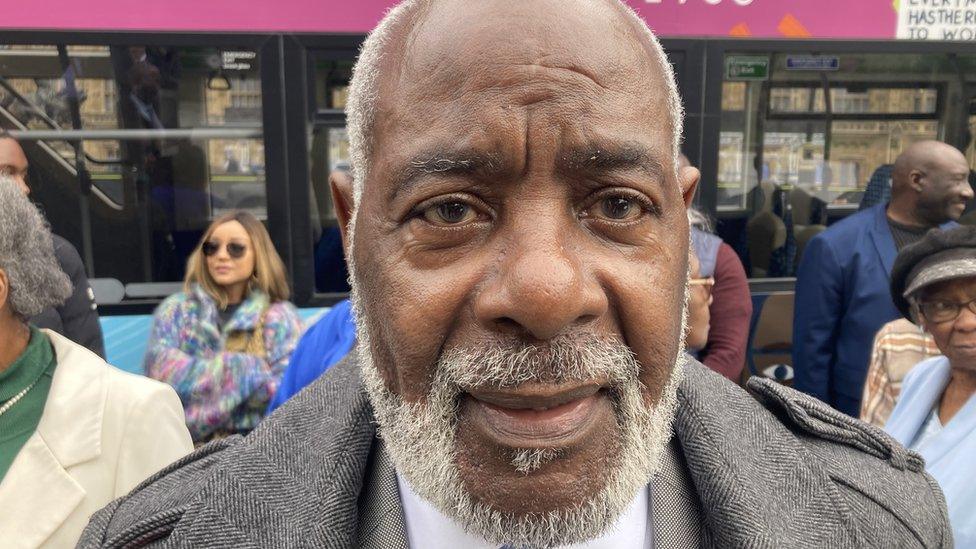
- Published28 August 2023
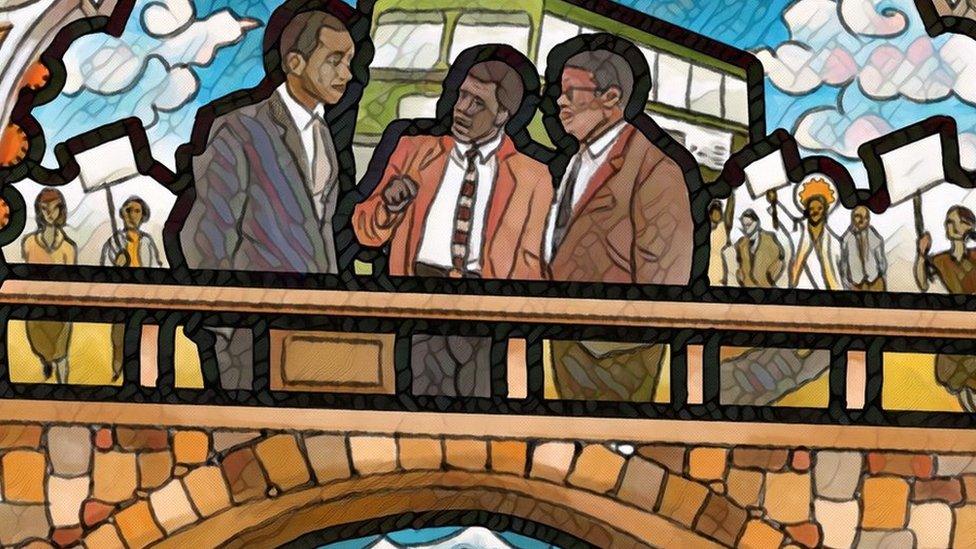
- Published28 April 2023
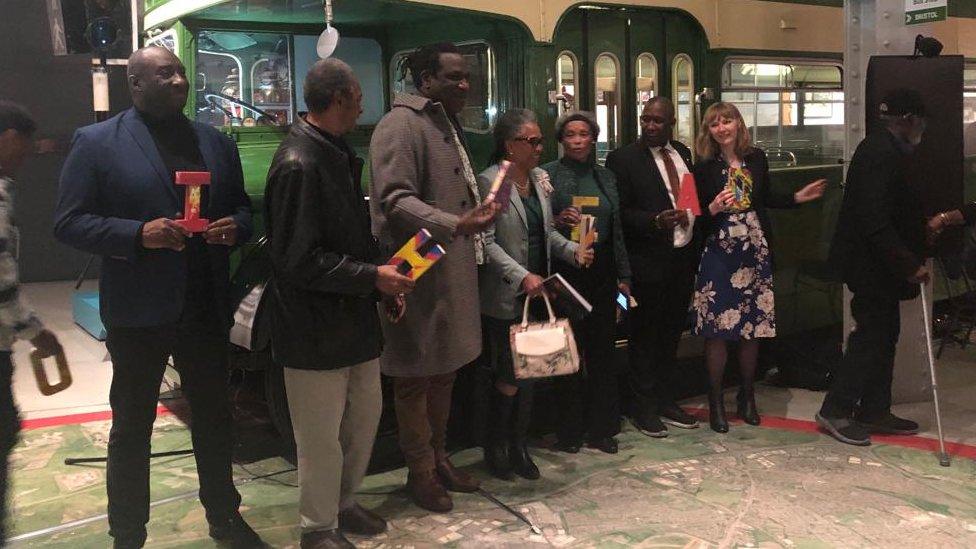
- Published18 February 2023
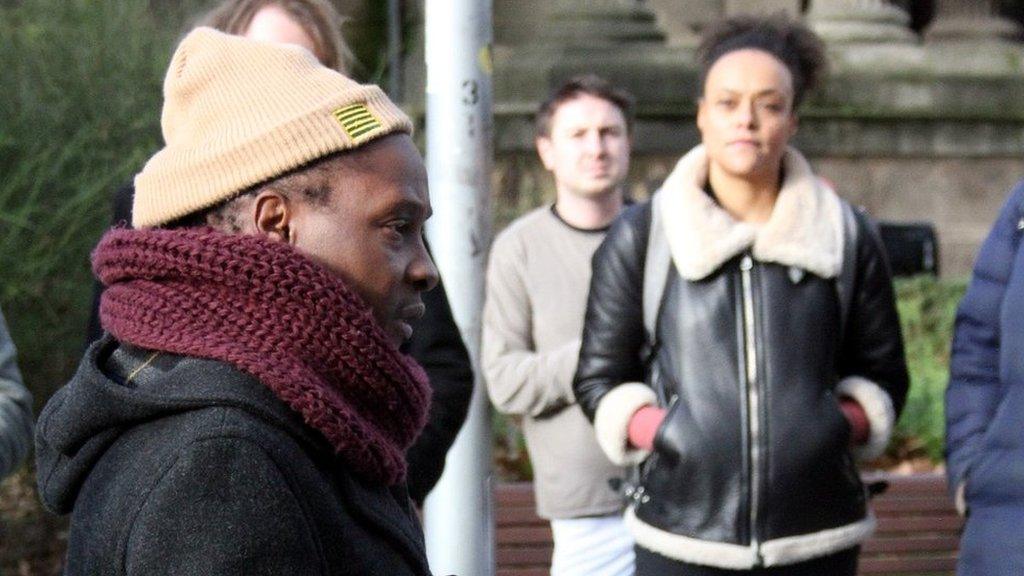
- Published1 July 2023
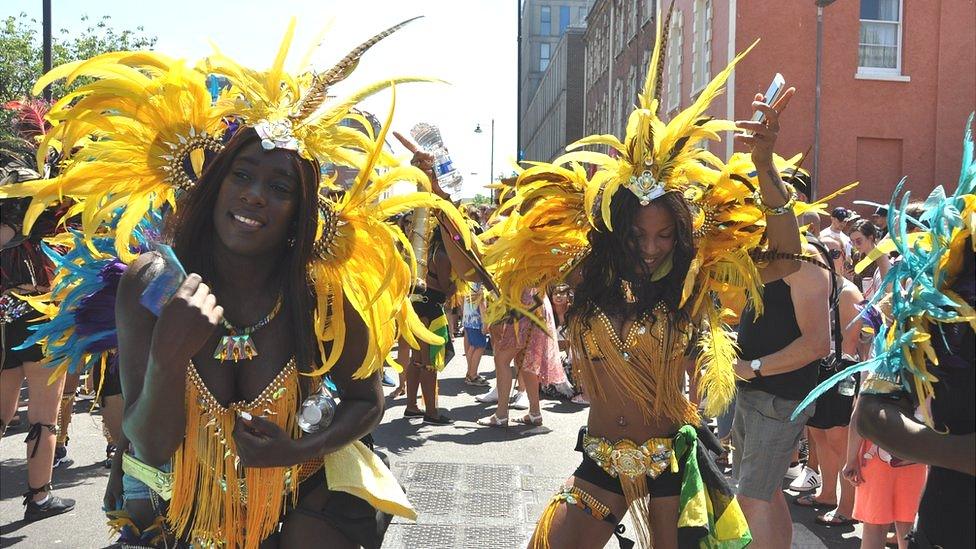
- Published17 November 2022
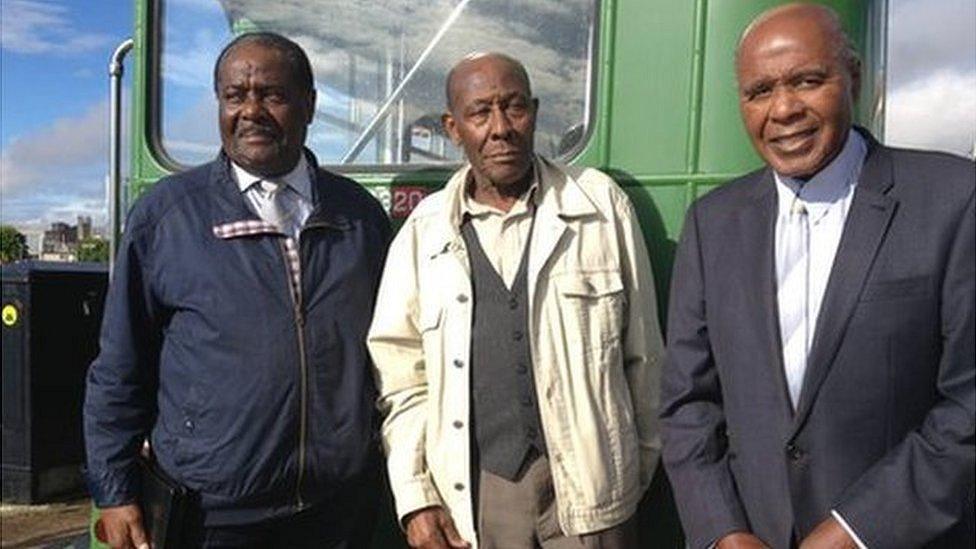
- Published27 August 2013
